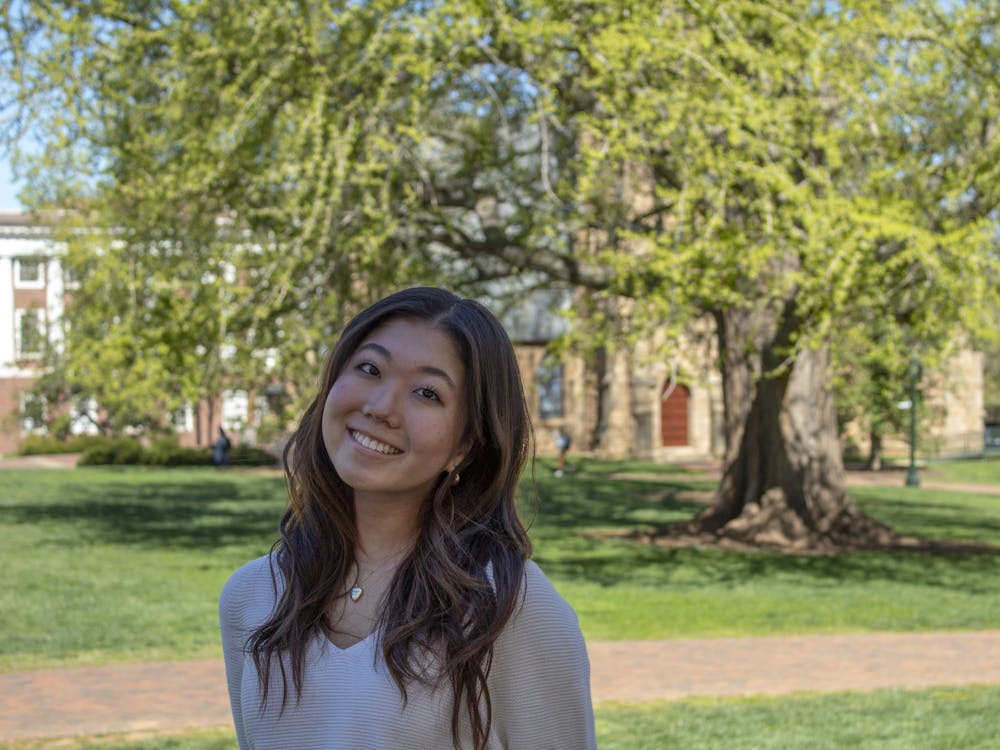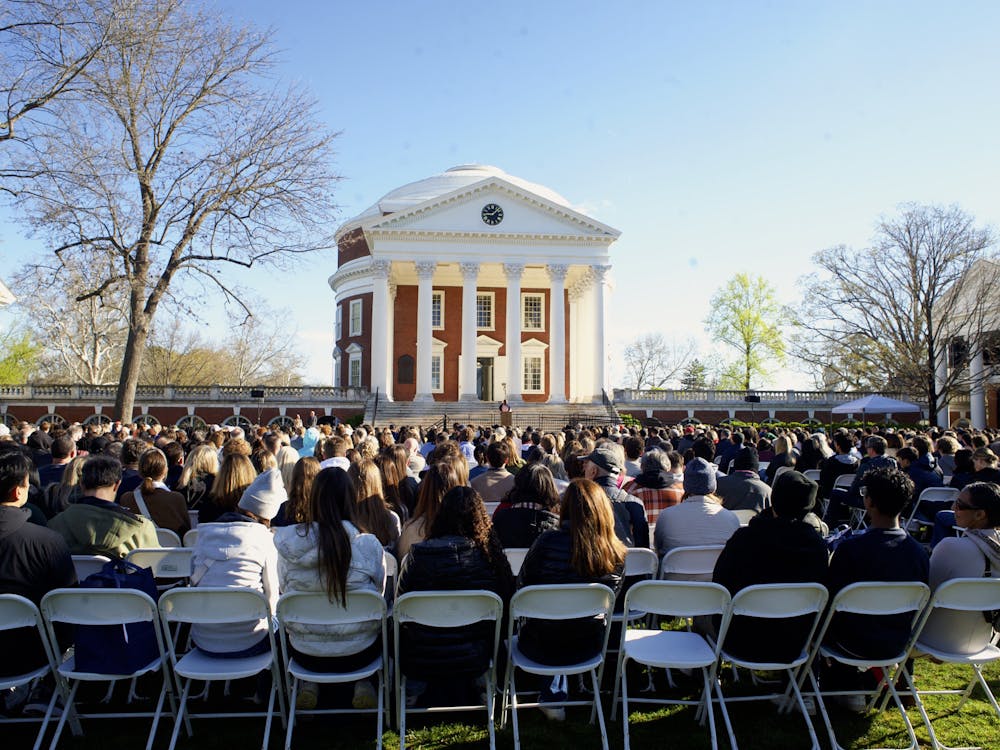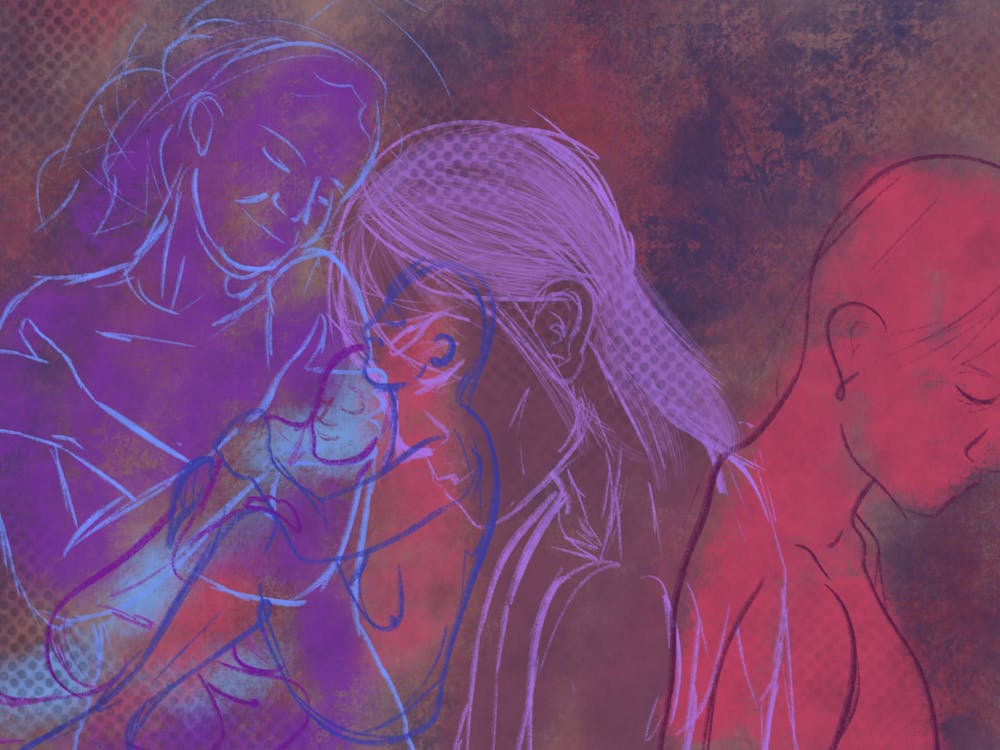As someone who is interested in both the humanities and sciences, I sometimes feel as if I’m straddling two different countries, each with their own rules, languages and cultures. For those who don’t have the experience of poetry and organic chemistry in the same day, let me try and tease it out for you.
Day 1 of ENCW: I walk into a small classroom with those rolly-desks arranged in a circle like an Alcoholics Anonymous support group. A girl in parachute pants is sitting cross-legged on the chair eating sushi from Clark. I pull out my course pack from NK Print & Design ($41) and turn to “Leaves of Grass” by Walt Whitman. The professor strides in wearing an oversized denim jacket, combat boots and one of those hipster backpacks from Urban Outfitters. He stretches out his arms in a metaphorical embrace.
“Pack up your stuff kids, we’re going outside today! One necessarily must read ‘Leaves of Grass’ whilst in the grass.”
I grab my course pack, parachute-girl grabs her sushi, and we head outdoors to enjoy some subtly pansexual words by the man my local middle school was named after.
First ENCW assignment: Write a letter to your professor explaining how you feel.
Day 1 of CHEM 2410: I walk into a big lecture hall that smells of mildew and the fear of pre-med students. A boy with greasy glasses sits in the very front, his Alienware computer running code while he munches on a Nature Valley granola bar as if he was too important to eat breakfast. I pull out my monstrous textbook from the University Bookstore ($214) and turn to Chapter 1, “Organic Chemistry is Not That Bad.”
The professor saunters in with a white lab coat and no-nonsense close-toed shoes perfect for lab. She whams down her leather briefcase to emphasize the weight of the material inside it and turns to us with intense eyes.
“Alright, no fluffy business, let’s get started,” she says as she bangs the chalkboard eraser against the wall, showering the first two rows in white dust, then begins drawing intimidating bond-line structures on the board.
First CHEM 2410 assignment: 50 questions of resonance structures and predicting acid base reactions due at 5 p.m. on an online platform.
It might seem from my descriptions above that the distinction between the humanities and the sciences is between easy (the former) and hard (the latter). This is a common misconception. Last semester a well-meaning math professor of mine shifted uncomfortably when I confessed to him I wanted to major in English. I could see concern spreading over his face and his eyes went dark with urgency.
“English … English … ” he muttered, “But, you seem smart enough to be in math or science. English? You don’t need to be in English, you know. You are capable.”
I will be honest. I understood his concern. One computer science major is going to have, on average, more jobs available to him than the fellow who studies English. What bothered me about my math professor’s statements, however, was his perception that STEM people are inherently more intelligent. To him, anyone who studied English or philosophy just didn’t have what it took to study a “real” subject like differential equations or chemistry.
Though I might feel more relaxed in my ENCW class compared to CHEM 2410, writing poetry is no easier than solving chemical equations. Expressing how I felt turned out to be very difficult, forcing me to use a part of my brain I am not naturally inclined to use. Finding the right metaphor to describe an experience was as frustrating as finding the right ratio of acid to base in a titration. The difference is not between difficulty but in ways of seeing and understanding the world.
For me, this difference and the interplay between the two fields is precisely why I love studying both. Analyzing poetry has helped me be more open minded when trying to solve a chemistry problem. The logic of math has helped me be more organized in my writing. It’s not that one field requires more intelligence than the other, it’s that the combination of both has made me think more deeply and passionately.
Maybe this is too bold, but my math professor’s view felt heavier to me than just misunderstandings from one academic area to another. It felt subtly analogous to notions that certain races are only capable of manual labor or that women were too hysterical to be anywhere other than domestic realm. It felt like a symptom of this human tendency to want to stay in one type of world without considering other ways of doing things. Perhaps this is the real reason I love studying both STEM and humanities fields.
Having to see the world through two different lenses on a regular basis keeps me guessing, learning and enlarging what I think is possible. Maybe if I can learn to navigate the culture differences of English and chemistry and appreciate the wonders in both, I can be better suited to navigate the differences between people of different races, genders, religions or cultural backgrounds. So maybe the first step in a unified mindset is not to hold candlelight vigils or open-mics — though those are awesome — but to simply force the BME students to take fiction writing and philosophy majors to take some linear algebra. (Or maybe this is just my humanities side talking and my STEM side needs to beat some sense into me.)





